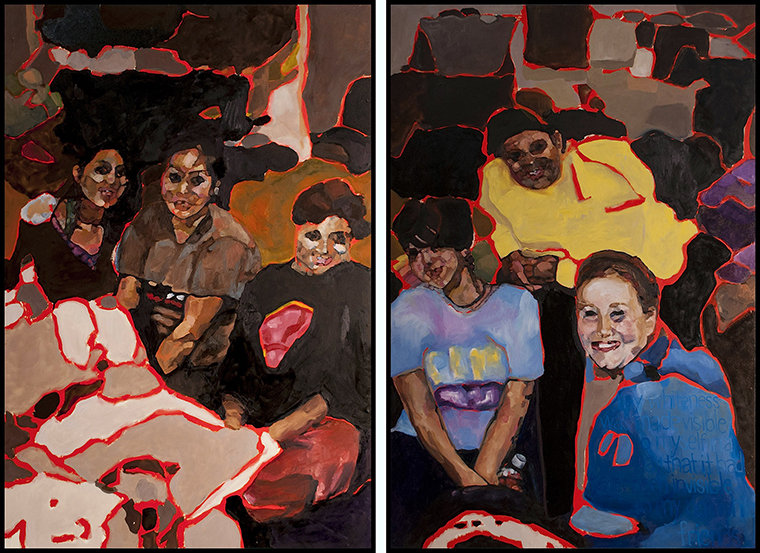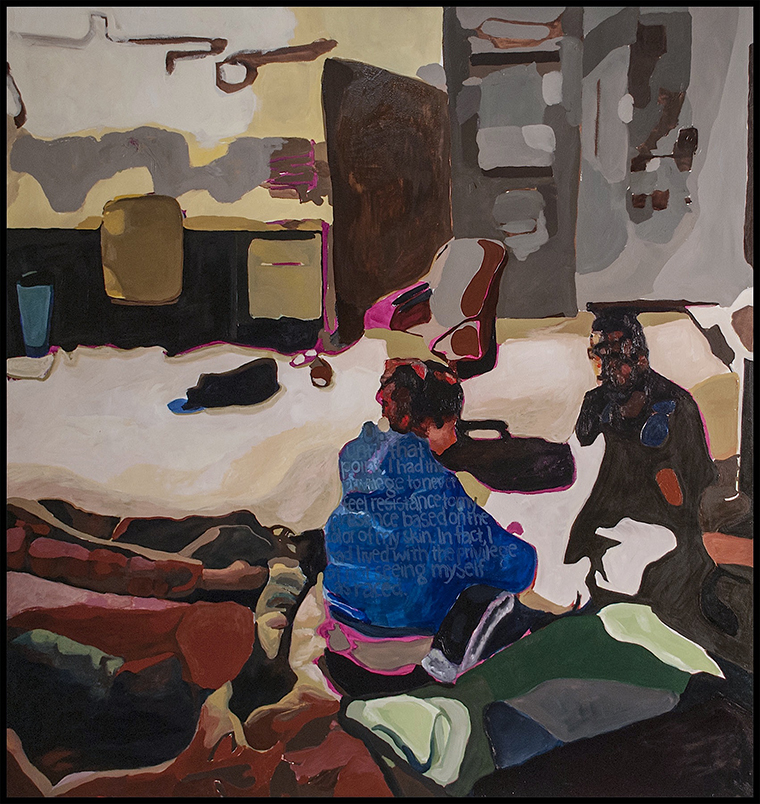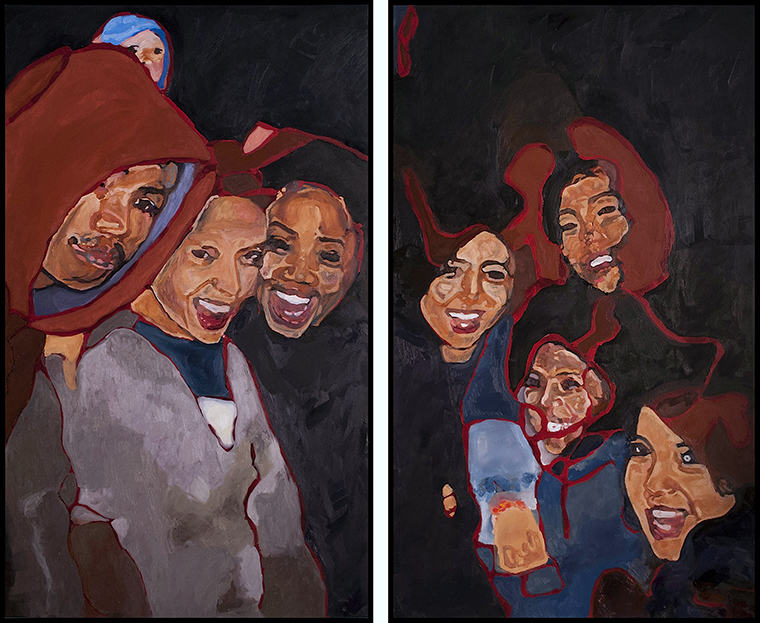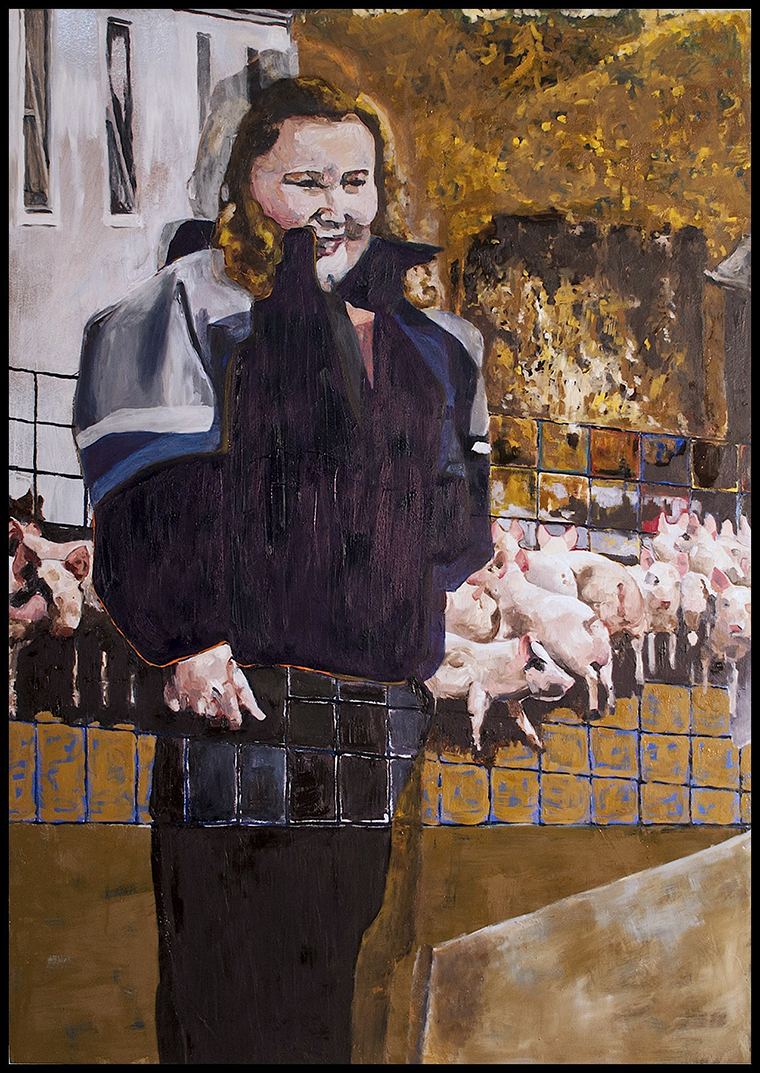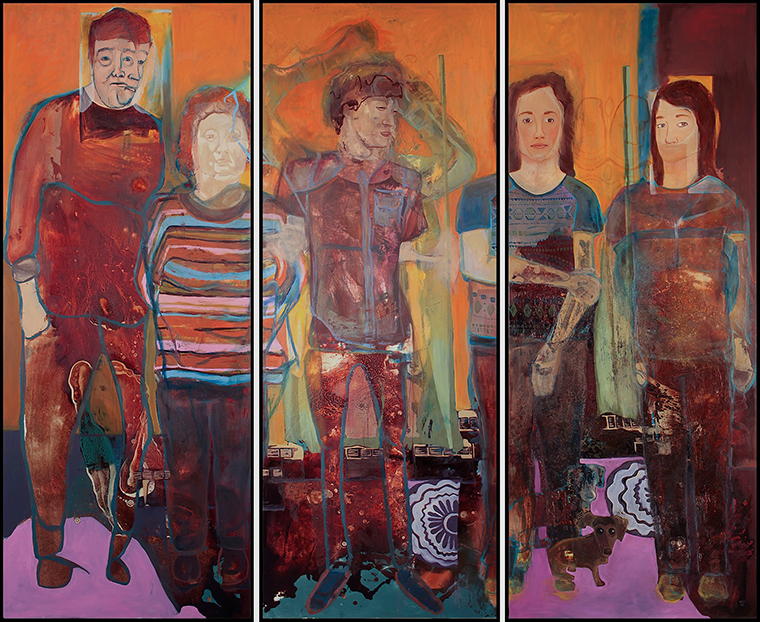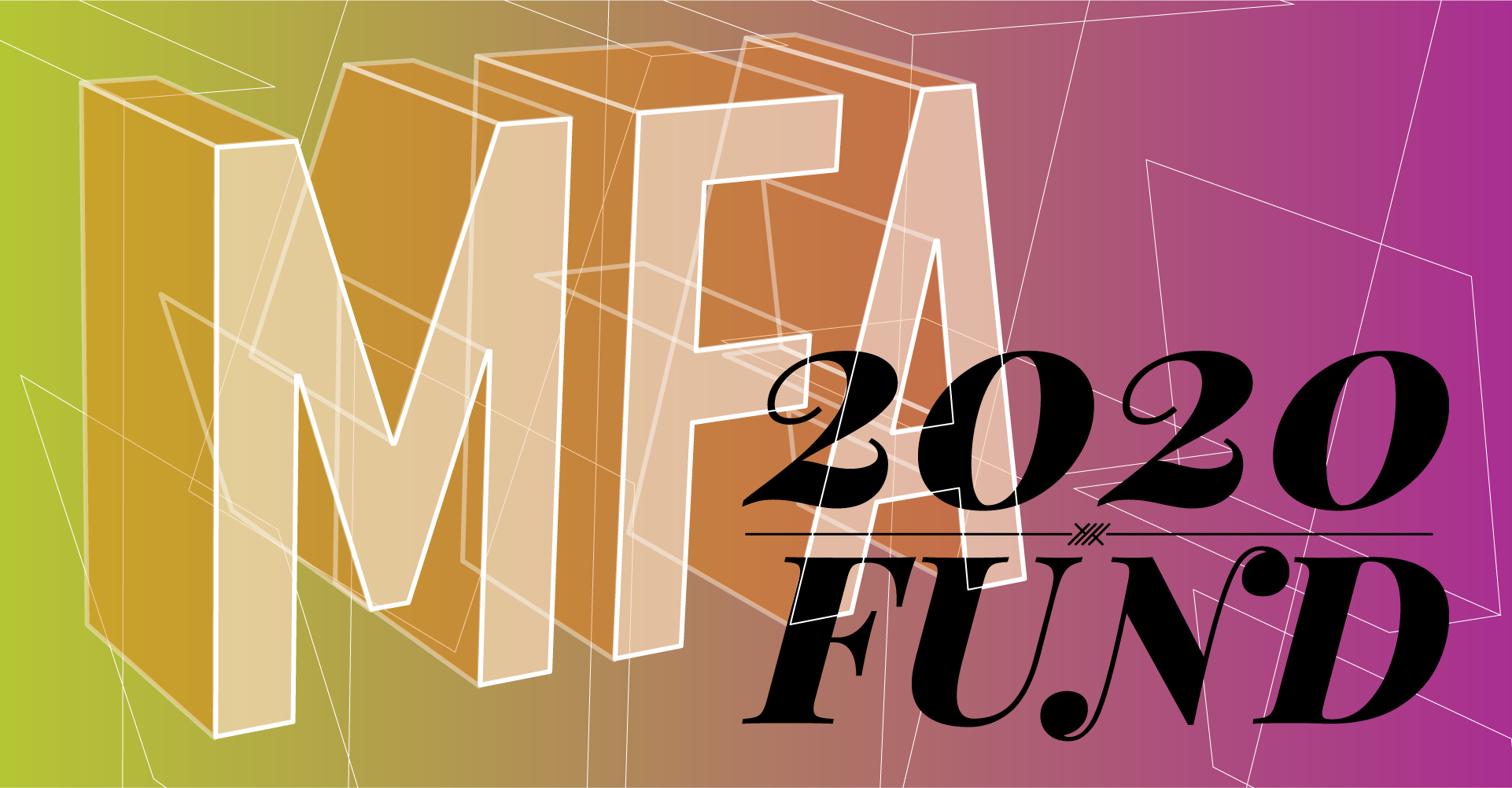By drawing on my own cultural background of a white woman raised in a small town in central Iowa, my work stems from the difficulties I have in answering the question ‘who am I?’ Thinking of identity as a cultural, social, and psychological construct, I am exploring the manipulation and materiality of identity representation in the context of individual identity formation. Specifically exploring ‘whiteness,’ my work is rooted in interpersonal relationships within racial terms, examining the gaps between definitions of normalcy and the desire to belong.
Through the manipulation of pigment and oil, my paintings reflect my struggle as well as my yearnings and my concerns relating to racial divides. The seams of racial construction—of cultural identity—begin to unravel through my distorted representational imagery of figures and their contexts. I am using memory as a departure point, without nostalgia, to dissect and discover the roots of my struggle. My snapshot-like paintings speak to notions of capturing a moment—often idealized—through a faked happiness and union. The posed snapshot works to contextualize and relive idealized memories, revealing another reality. Allowing the painting to serve as meditation on a specific moment, I see the process of painting itself as a contemplative act to open space for the ambiguities of an experience.
I seek to open the discourse, to question this identity, and to recognize the power, privilege, and entitlement I bear as I begin to unpack my own whiteness. I want my work to interrogate issues and raise questions that linger underneath the polite smiles in the snapshots and within my community. These snapshots have acted as an undetected blanket of conformity that has allowed me to sleep in the ignorance of my own whiteness. I need to see race. To see whiteness as race—and not as normalcy—is to see the consequences of race. How have I acted as the oppressor? And how do I begin to visually depict this thing that has secured power through its pervasive and insidious invisibility to those whom it privileges?
